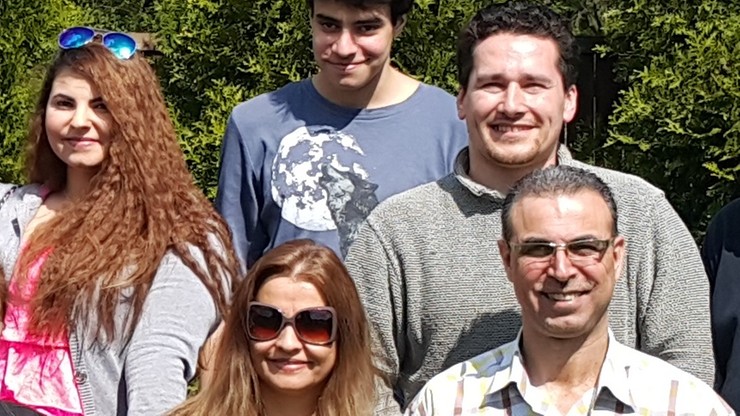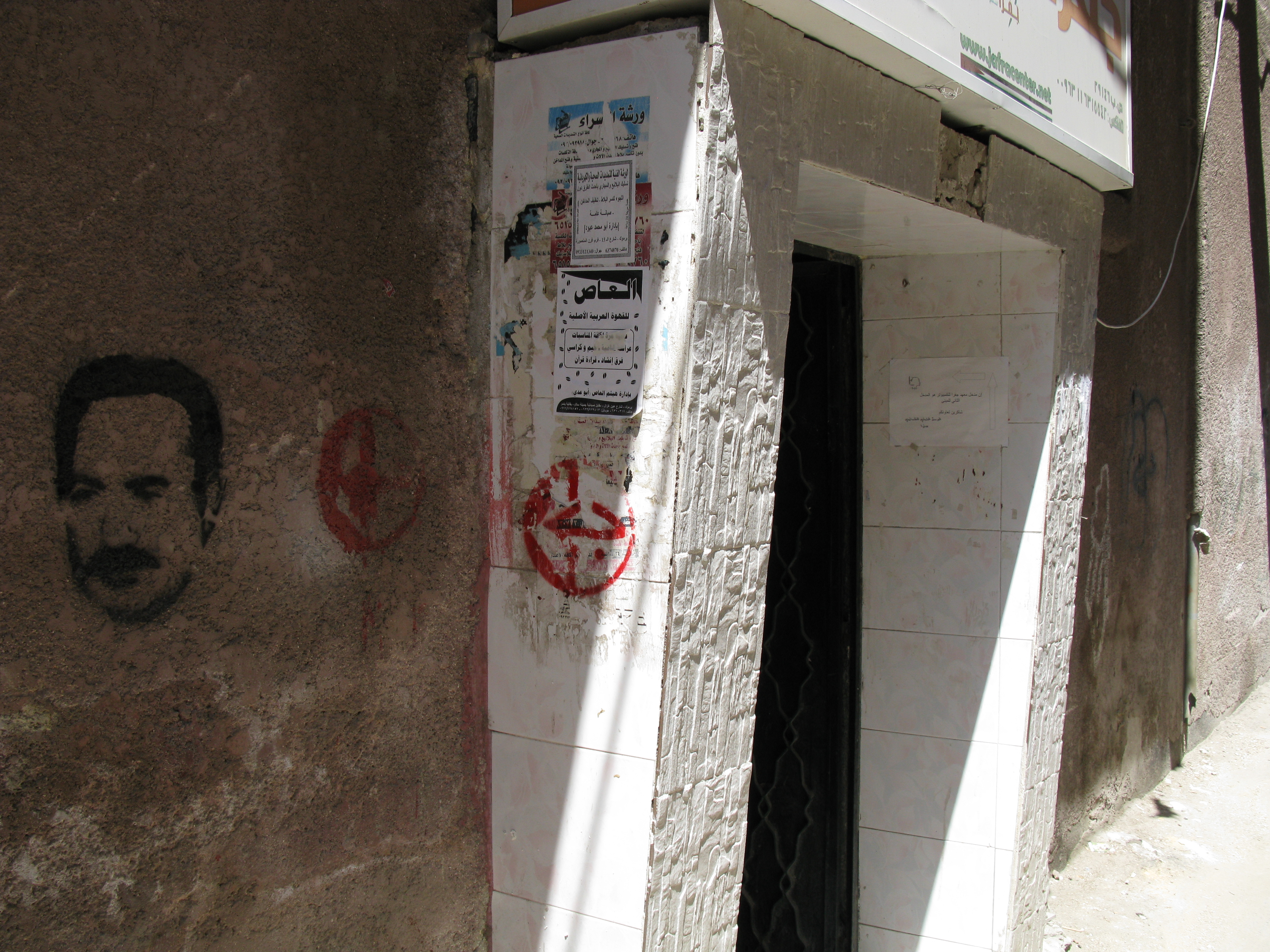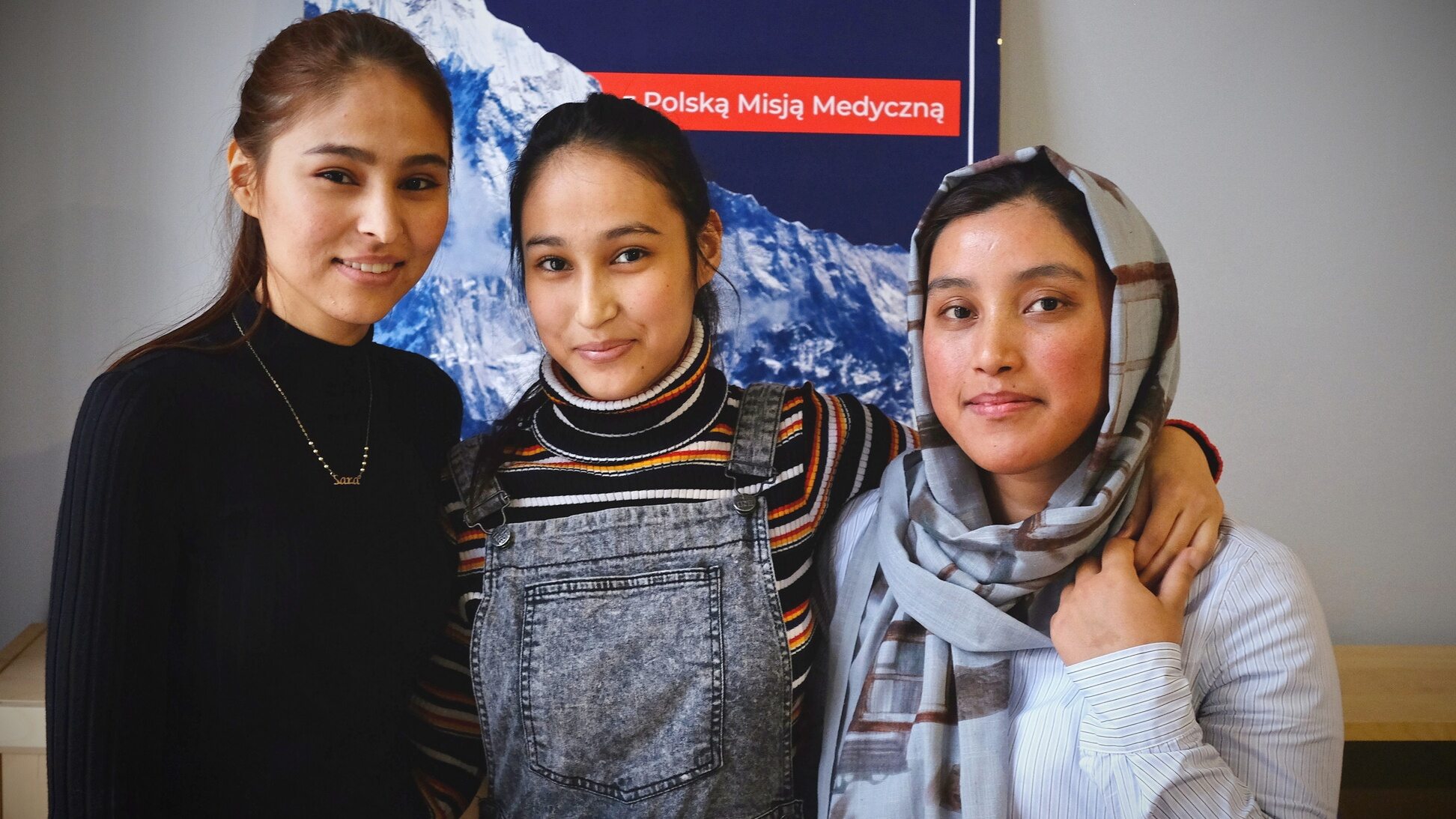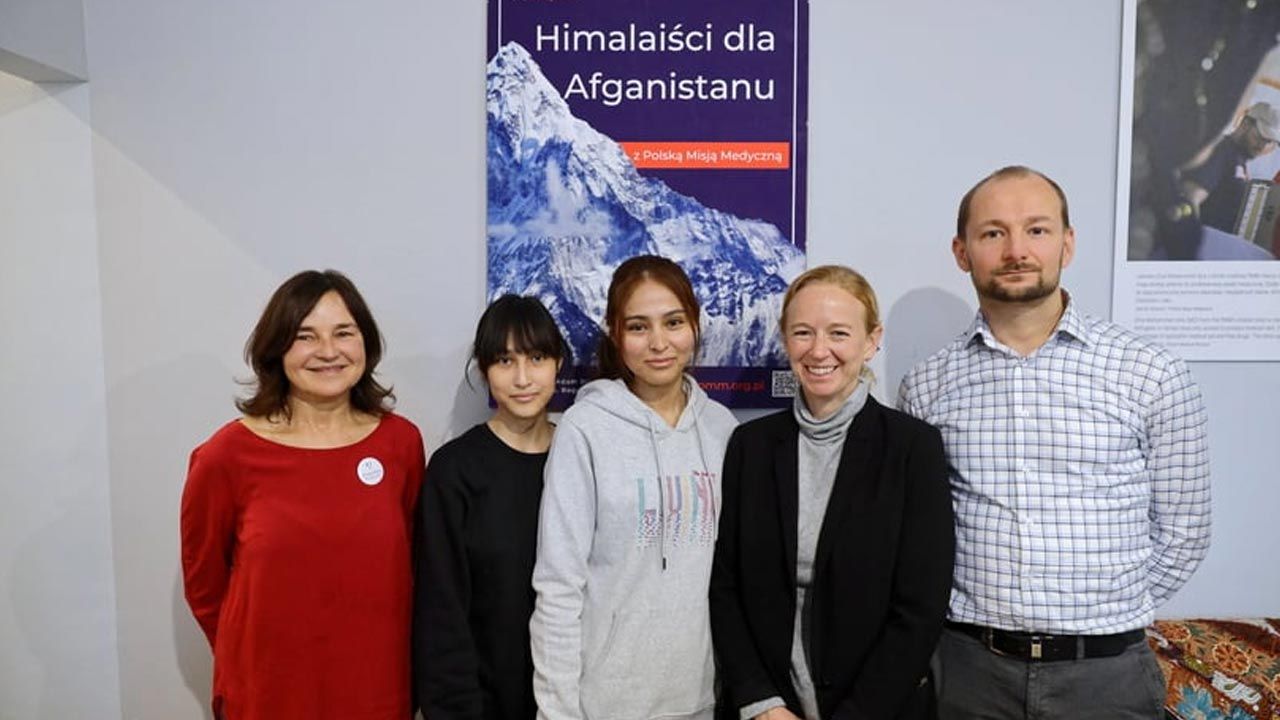|
|
Post by Bonobo on Sept 8, 2016 13:49:25 GMT 1
Story 1 A Christian refugee family from Syria decided to return home in Damascus after a year spent in Poland. Not knowing the language, they had problems with finding well-paid jobs or studies at Polish unis. They attended a Polish language course but it didn`t help. The situation in Damascus has improved and they had inherited an apartment so they left Poland. They were in the group of 150 Christian refugees who came to Poland in 2015 and settled in Tarnów. Today, only about 30 remained - the rest returned home or moved to Germany and Scandinavia (where social benefits are much higher than in Poland). Cultural difference 1 - In Poland, both parents usually work to enjoy a decent standard of living. In Syria, it is man`s duty to make enough money to provide for the whole family. That is why the Syrian husband/father was very disappointed he couldn`t keep up their native lifestyle in Poland.  |
|
|
|
Post by jeanne on Sept 8, 2016 14:44:12 GMT 1
That's encouraging news that things have improved in Damascus so that this family could return.
Let's hope the situation continues to improve and displaced Syrians can return to their homes.
|
|
|
|
Post by Bonobo on Sept 8, 2016 21:01:54 GMT 1
That's encouraging news that things have improved in Damascus so that this family could return. Let's hope the situation continues to improve and displaced Syrians can return to their homes. Actually, heavy fighting never took place in the city. It hasn`t been destroyed to such extent as other places in Syria. Its population is the same as Warsaw`s! But density 5 times bigger. |
|
|
|
Post by jeanne on Sept 8, 2016 23:51:25 GMT 1
That's encouraging news that things have improved in Damascus so that this family could return. Let's hope the situation continues to improve and displaced Syrians can return to their homes. Actually, heavy fighting never took place in the city. It hasn`t been destroyed to such extent as other places in Syria. Its population is the same as Warsaw`s! But density 5 times bigger. That's interesting... |
|
|
|
Post by pjotr on Sept 10, 2016 5:26:09 GMT 1
The Battle of Damascus Douma district of Damascus Douma district of DamascusThe Battle of Damascus (Arabic: معركة دمشق), also known as Operation Damascus Volcano (Arabic: عملية بركان دمشق), started on 15 July 2012 during the Syrian Civil War. It is unclear who started the battle. Thousands of rebels infiltrated Damascus from the surrounding countryside. Following this, according to some reports, the opposition forces launched an operation to capture the capital, while according to other reports, the military learned of the large-scale rebel operation beforehand and made a preemptive strike. Some reports even suggested the rebels launched the operation prematurely due to their plans being discovered by the security forces. After the rebels initially captured half a dozen districts and killed four high-ranking government ministers in a bombing, opposition forces were forced to retreat following a military counter-attack, leaving the army in control of the capital after three weeks of fighting. It was the first time tanks and helicopters had been deployed in central Damascus and left parts of the city as a warzone. pl.wikipedia.org/wiki/Bitwa_pod_Damaszkiem_(2012-2014)
|
|
|
|
Post by pjotr on Sept 10, 2016 5:39:16 GMT 1
Palestinian fighters recaptured some occupied parts of the Yarmouk refugee camp near Syrian capital, in 2012. Heavy clashes erupted in the camp between Palestinians and foreign-backed militants in which tens of insurgents affiliated to al-Nusra Front were killed and the remaining retreated and ran to other areas. Palestinian groups started to gather fighters in July 2012 to stand against militants who entered the camp a few months earlier. Many of the Palestinian refugees have been forced to leave the camp by militants who seeked to use it as a base to step up their attacks on Damascus. Belongings left by the militants in the buildings showed they were al-Nusra fighters. In the few months of their presence in the camp, militants had dug several tunnels to transfer arms and equipments. Digging tunnels is a common practice among militants fighting against the government in Syria. They use them for moving around, transferring equipments and even targeting people and army soldiers. An army commander told Fadhl that, army soldiers are going to continue the path they started and plan to move on to the Hare al-Sa'ada and al-Rajoule Mosque. Palestinian fighters were determined to move on and restore security to the camp. Yarmouk camp was home to the largest Palestinian refugee community in Syria.The camp turned into a flashpoint area in Damascus when unrest broke out in the Arab country in 2011. In June 2012, United Nations Relief and Works Agency's commissioner general described Palestinian refugee camps in Syria as " theaters of war." " Killings, kidnappings, poverty, destruction and fear have become part of daily life," Filippo Grandi said. More than half of the 530,000 Palestinian refugees registered in Syria have been displaced and 15 percent have fled abroad, including 60,000 to neighboring Lebanon and over 7,000 to Jordan. Yarmouk Camp Jafra PFLP-Office in the Palestinian Yarmouk Camp Jafra PFLP-Office in the Palestinian Yarmouk CampYarmouk Camp (Arabic: مخيم اليرموك) is a 2.11-square-kilometre (0.81 sq mi) district of the city of Damascus, populated by Palestinians, with hospitals and schools. It is located 8 kilometres (5.0 mi) from the center of Damascus and inside the municipal boundaries but when established in 1957, it was outside the surrounding city. Yarmouk is an "unofficial" refugee camp; it was home to the largest Palestinian refugee community in Syria. As of June 2002, there were 112,550 registered refugees living in Yarmouk. During the Syrian Civil War, Yarmouk camp became the scene of intense fighting in 2012 between the Free Syrian Army and the PFLP-GC supported by Syrian Army government forces. The camp then was consequently taken over by various factions and was deprived of supplies, resulting in hunger, diseases and a high death rate, which caused many to leave. By the end of 2014, the camp population had gone down to just 20,000 residents. In early April 2015, most of the Yarmouk camp was overrun by the Islamic State of Iraq and the Levant, sparking armed clashes with Palestinian militia Aknaf Bait al-Maqdis, associated with Hamas and the Muslim Brotherhood. According to the Syrian Observatory of Human Rights, ISIL ( Daesh) attack resulted in 40 ISIL militants killed; Palestinian sources reported about 12 camp residents killed, while Syrian source reported 13 killed; and independent sources also confirmed two fatalities from mortar fire in an adjacent Damascus area. It was reported that despite Palestinian militia resistance and parallel bombing by the Syrian Air Force, ISIL still controlled 90% of the camp by 6 April. The situation in the camp came to the attention of the UN Security Council, which aimed to discuss the prospects of some 18,000 residents of the occupied camp. |
|
|
|
Post by Bonobo on Sept 10, 2016 13:16:45 GMT 1
Story 2 It took Azad Nouri from Iraq a few years to permanently settle down in Poland. In an interview he talks about multiple beaurocratic problems he faced in Poland. Despite decent education and languages, he couldn`t find good work because employers told him he looked like a gypsy and would provoke negative stereotypes. He felt disappointed because the famous Polish hospitality didn`t work in his case. Now his situation is a little better but his relatives who had chosen Germany have had easier life there. Cultural difference 2 - People from the Middle East have darker skin and hair and sometimes may indeed resemble Roma Gypsies who have always resided in Poland but the general opinion about them is very negative. In close neighbour rankings a Gypsy person is on the lowest position.  natemat.pl/138969 natemat.pl/138969,nawet-uchodzcy-nie-chca-mieszkac-w-polsce-placza-gdy-dowiaduja-sie-ze-to-nie-niemcy-polska-da-im-bilet-powrotny |
|
|
|
Post by Bonobo on Sept 10, 2016 13:40:00 GMT 1
Story 3 Refugees of Polish origin who came from Ukraine. Tatiana Jerochowa escaped to Bydgoszcz from war-torn Donieck region in Ukraine. She is a gynecologist and came here with three kids. They received a furnished flat, she found a job at a local hospital, kids went to local schools. Her daughter studied medicine in Ukraine and now is trying to enroll at Medical Uni in Bydgoszcz.  The same with other families who came here with children. They were welcomed warmly and are planning to settle permanently.  There are beaurocratic problems but families are happy to be here and don`t want to go back. express.bydgoski.pl/338085,Sprawdzilismy-co-slychac-u-uchodzcow-z-Donbasu.html express.bydgoski.pl/358065,W-Bydgoszczy-znalezli-schronienie-kolejni-uchodzcy-z-ogarnietego-wojna-Donbasu.html |
|
|
|
Post by Bonobo on Jan 21, 2022 15:17:31 GMT 1
The story of 3 female alpinists from Afghanistan who escaped from Taliban oppression and settled in Poland. www.onet.pl/styl-zycia/onetkobieta/afganskie-alpinistki-w-kabulu-trwa-koszmar-zostali-w-nim-nasi-bliscy/55pzkn3,2b83378a
Afghan mountaineers start their lives in Krakow. "There is a nightmare in Kabul. Our relatives stayed there"
- I was away from home then. Someone said the Taliban are in Kota e Sangi. I thought he was joking and didn't take it seriously, but I remembered that my friend was near this place. Asma and I tried to call him but he didn't answer. Moments later he called back saying "yes, they are here". It dawned on me that it was true, but I still couldn't believe it - says 22-year-old Sara, recalling in an interview with Onet the day the Taliban entered Kabul.
Dagmara Pakuła
9.1K
January 18, 2022, 08:30
You can read this text in 6 minutes
Sara, Asma and Shahida on their way to Babia Góra - the interviewee's private archive
Afghan women feel despairing about the difficult economic situation of their relatives. They say that after a month of hiding at home, people tried to return to work, but for another month they did not receive any salary
Shahida notes that the situation of the Afghans is deteriorating overnight. - Every day the Taliban introduce new rules, be it in women's work or life, he explains
According to Sara, the situation in their country is also very difficult for men, if only because of how their work environment has changed. - Until now, they have often cooperated with women, and now, when there is no such possibility, they themselves lose many opportunities for development - he adds
19-year-old Shahida and two sisters: 22-year-old Sara and 19-year-old Asma are one of the few Afghan women who chose a sport that is quite unusual for local women. While living in Kabul, they practiced mountain climbing, although they tried not to praise it in their hometown.
"We hid our passion even before the Taliban took power," says Sara, explaining that there are many conservatives among the Afghan community who might not like the fact that young women chose, in their opinion, a sport that was masculine. - We were afraid that we might be attacked on the trail, so we kept it a secret - he explains.
In Hindu Kush they trained under the supervision of the Polish climber Łukasz Kocewiak. Sarah never thought that it was the people associated with her beloved sport that would prove to be a rescue for her and her sister.
- private archive of the interlocutor
With the help of the Ministry of Foreign Affairs and the Polish Medical Mission and the support of Polish mountaineers, young mountaineers were invited to be brought to Poland, although it was not an easy way. In October, the girls were evacuated to Pakistan. As citizens of Afghanistan, they could apply for Delhi visas in India, but at the request of Małgorzata Olasińska-Chart, as an exception, they were allowed to submit applications in Islamabad, where there is also a Polish office issuing visas.
The mountaineers were invited to Krakow for the Mountain Festival. On December 4, the sisters arrived, and their friend Shahida arrived in Krakow two days later for formal reasons related to the process of obtaining a visa and the flight schedule. It soon turned out that they would stay in Poland longer and try to get their lives back together.
I felt safe and happy that we managed to get here, especially since we had to overcome many adversities on the way to Poland, such as a two-month stay in Pakistan. I was relieved, but my thoughts were far away - home
- admits the 22-year-old and emphasizes that "they met wonderful people here who warmly welcomed them".
The Afghan women spent Christmas with a Polish family, and they liked the Polish edition very much, because - as Sara explains - "the atmosphere resembled that in Afghanistan during Eid al-Adha".
New life
On January 17, the girls started an intensive Polish language course. They also submitted documents at the Krakow Academy of Andrzej Frycz Modrzewski and received a written assurance from the university that they would be accepted for studies. At the Department of Foreigners of the Małopolska Voivodship Office of Afghanistan, women submitted the documents required to obtain a residence card for the duration of their studies. Acclimatization in Poland was started, among others, by from what they love the most, which is mountain hiking.
- We were most surprised by the mountain shelters where you can spend the night during the trip. There is no such solution in Afghanistan. If you know you will be caught at night on your way, take your tent and everything else you need to know. In our country, hiking in the mountains is more survival - says Sara, admitting that Afghan mountain tourism is interesting, but more risky than in Poland.
The first direction they chose was Babia Góra , but they admit that they were not sufficiently prepared for the weather conditions and they did not manage to climb Diablak itself. Even so, they were delighted with the hike.
Sara, Asma on the way to Babia GóraSara, Asma on the way to Babia Góra - the interviewee's private archive
When the topic of the family home appears in our conversation, Sarah speaking on behalf of all three becomes serious for a moment. I am not the first person to ask mountaineers what life is like in their country today, but the 22-year-old responds with calm and clearly moved.
Returning to the day when "everything changed", he admits that rumors were circulating among Afghans that the Taliban would enter Kabul on Saturday, but no one believed it. - It was something ridiculous for us, so we did not prepare in any way, even when some people said that they were already in the surrounding provinces - he says. The girls recall that the day began as usual: everyone went about their own affairs, until at one point, when the rumors turned out to be true, the Afghans dropped everything and ran to their homes.
Students were told to go home, people were to leave their workplaces. I was away from home myself. Someone said the Taliban was in Kota e Sangi (in the shopping complex - ed.), I thought he was joking and I didn't take it seriously, but I remembered that my friend was nearby. Asma and I tried to call him but he didn't answer. Moments later he called back saying "yes, they are here". I realized it was true, but I still couldn't believe it
- recalls the 22-year-old.
At that moment, Sara and Asma, like most Afghans, hurried back home, where they say they spent the next month with their parents and brother. - Nobody went anywhere. There were no more jobs known to us from the pre-Taliban era. The country was in chaos and people had no idea what to expect. We felt like we were in a nightmare that we really wanted to wake up from - says Sara, adding sadly that "this nightmare continues and her relatives are still in it."
"They can only afford not to die"
Afghan women feel despairing about the difficult economic situation of their relatives. They say that after a month of hiding at home, people tried to return to work, but for another month they did not receive any salary.
In Afghanistan, Sara said that "prices are going up and the economy is going down." In addition, salaries have decreased significantly, people cannot freely withdraw their savings from banks. - Only recently, it is allowed to choose max. $ 200 a week. Afghans work and try to live as normally as possible, but in fact they can only afford not to die. Nothing else, says Sarah.
We recommend: We will be happy yet
For the Afghans, the lack of money means not only worse living conditions, but most of all the inability to leave the country. Girls emphasize that the very acquisition of a visa is associated with a great expense, and the limited access to savings means that their relatives have their hands tied.
Shahida adds that the situation of the Afghans is deteriorating overnight. - Every day, the Taliban introduce new rules, be it on women's work or life. There is no indication that it will improve - he explains.
"It's also a strange and difficult situation for men"
A big change has taken place in the university and school community, and it is not just about the complete separation of the female and male groups. - Highly qualified teachers cannot teach boys now and vice versa. Men will not conduct classes with women, which is a huge loss, because, for example, most physicists or mathematicians are men - explains Sara, adding that "people in Afghanistan, especially those from the younger generation, are very wise and aware of what is happening. happening ".
For men, the current situation is also very difficult, if only because of how their work environment has changed. Until now, they have often collaborated with women, and now, when there is no such possibility, they themselves are losing many opportunities for development
He explains, explaining that he is in touch with his friend who stayed in Kabul. It was he who allowed the 22-year-old to get to know the "male view of the situation".
Sarah says her colleague is the type of idealist who "was always very determined and believed in a bright future, also for their country." - He believed in Afghans and our strength. At that moment, everything turned 180 degrees from what he dreamed of. Nothing depends on us anymore. His heart broke. Ours too , said Sarah.
Afghan love
As girls talk about their daily lives and friends, I try to find out how young people's relationships work in their culture. Sara says that in the past, couples were dating in public places, and young women could spend time with male friends without fear , although - as she reveals - they rather tried to cover it up in front of their parents.
- Of course, not every family has the same views. As everywhere, people are divided into more and less conservative, but as a rule, young people live with their parents until the wedding itself - explains Afghan, adding that arranging marriages is an element of tradition, which was also present in her and Asma's house.
Read on: The evacuation of animals from Afghanistan is controversial. "My translator's family will probably die"
The whole "process" begins with the boy's parents, who, alone or together with their son, choose a candidate for a daughter-in-law. This usually applies to girls from the age of 17. The 22-year-old tells that in practice everything is based on conversations: first, parents with their son, i.e. the potential groom, then the boy's parents with the parents of the chosen girl, and after their mutual consent, the young themselves talk about the future. - Ultimately, the decision is up to the girl, no one would force me to do anything - emphasizes Sara.
When asked if her parents had already arranged such meetings for her, she laughed that "too many", but none of them ended with a wedding.
Abandoned dreams
Sara, Asma and Shahida left not only their relatives in Afghanistan, but also the dreams they had built for years. However, they are so determined that they decided to "not give up on them, but only adapt them to the situation".
Asma and Shahida had to drop out of college - Asma studied Russian intensively, but her education at an Afghan university lasted only one semester. Before she was forced to leave her studies, she aspired to become a translator.
Shahida's studies of law and musicology were also limited to one semester. After graduation, she planned to teach music in her hometown. Today she hopes that wherever she goes, she will still have a chance.
Sara worked in her country as a kindergarten teacher and taught art to older children. He ensures that he will never give up his dream to start his own kindergarten, no matter in which country it is to be established.
In Krakow, Sara Asma and Shahida will study faculties in English - management and marketing. Their studies and stay in Poland will be financed by the American organization Ascend, which organized women's climbing courses in Afghanistan and looked after them in Pakistan.
"Gifted students like my daughter"
- I am glad that thanks to the solidarity of many people, these three fantastic young Afghan women have found shelter in Poland. I meet them every day and see how engaged they are in a Polish language course, meetings at the Mountaineering Club in Krakow or music classes - says Małgorzata Olasińska-Chart from the Polish Medical Mission, which has taken care of the climbers.
She admits that "on the one hand, she sees them as simply talented students, such as her daughter or her European friends, but on the other hand, she cannot forget why they had to flee Afghanistan and how terrible their families and friends are, who have failed to run away from the country ". - That is why it is so important for me that they feel like in a family among us. They already call me godmother and this role suits me very well - she concluded.
Do you want to support the Polish Medical Mission in Afghanistan? You can help in three ways:
set up a recurring payment in your bank for PMM activities or at pmm.org.pl/chce-pomoc
make a donation to the account number of the Polish Medical Mission: 62 1240 2294 1111 0000 3718 5444 with the note Afghanistan
Dagmara Pakuła - the main ones
   |
|